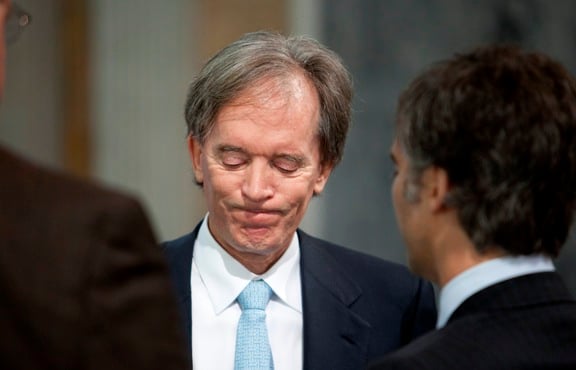Bill Gross, founder of Pacific Investment Management Co., said President Barack Obama's plan to stimulate the economy with more than $300 billion in tax cuts and spending is inadequate.
Bill Gross, founder of Pacific Investment Management Co., said President Barack Obama's plan to stimulate the economy with more than $300 billion in tax cuts and spending is inadequate.
“I don't think $300 billion does it,” Gross said today in an interview with Bloomberg Television's Tom Keene. “I would like to see something bold.”
Obama will propose cutting payroll taxes for small businesses as part of a plan to spur hiring, according to an administration memo obtained by Bloomberg News. The tax cut will be included in a package Obama plans to lay out in a speech to Congress tonight, along with assistance for the long-term unemployed, spending on roads and bridges and repairing schools, and aid to states to keep teachers and emergency workers on the job.
“I think markets will be disappointed eventually and possibly tomorrow morning if we see $300 billion or less,” Gross said.
Gross, who manages the world's biggest mutual fund at Newport Beach, Calif.-based Pimco, said fiscal policy in the U.S. and Europe has been effectively frozen as governments struggle with their debt loads.
Treasury Curve
Credit creation has been hurt as the U.S. Federal Reserve purchased assets and kept interest rates at historic lows since December 2008, Gross said. Fed Chairman Ben S. Bernanke risks causing a decline in longer-term lending by holding down rates, he said.
“The first five years of the Treasury curve is frozen,” Gross said. “Those who are looking for higher yield basically have to move out to the 10-year area and perhaps to 30 years.”
The $245 billion Total Return Fund managed by Gross has lost 0.3% in the past month, underperforming 85% of its peers, according to data compiled by Bloomberg. The fund's 3.8% return this year is worse than about two-thirds of competitors, the data show. Gross has outperformed 98% of his rival fund over the past five years.
--Bloomberg News--







